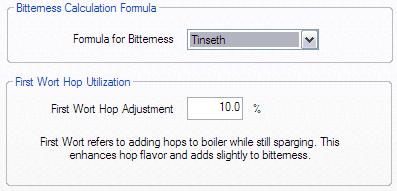uwmgdman
Well-Known Member
A FWH poll for the masses. Specifically, for those that have, what differences have you noticed, if any and any other general comments?




![Craft A Brew - Safale S-04 Dry Yeast - Fermentis - English Ale Dry Yeast - For English and American Ales and Hard Apple Ciders - Ingredients for Home Brewing - Beer Making Supplies - [1 Pack]](https://m.media-amazon.com/images/I/41fVGNh6JfL._SL500_.jpg)









Exactly! I first learned about this technique at an all-grain seminar I attended at my LHBS. The 'instructor' was a member of a local homebrew club, the Urban Knaves Of Grain. UKG members have taken away medal after medal at competitions around the country, so I paid close attention to everything he said!Yuri_Rage said:FWH is adding hops to the boil kettle while it's still dry, then letting the runnings flow onto the hops.
magno said:I guess what I dont understand about the concept is if the hops are in for the entire boil (and longer) what causes the aromatics not to boil off as they do for bittering hops?
- magno
On the contrary, that's what makes the technique so controversial and/or exciting. FWH supposedly adds aroma and flavor, even though the hops are in the wort for even LONGER.orfy said:Well said. I'd expect them to add bitterness not aroma. I was expecting the technique to allow a shorter boil or a saving of hops.
Reference my previous post, I'm not sure that I've had any luck with additional aroma/flavor, but the presence of hop oils at the start of the boil does a great job at keeping the wort from foaming and boiling over.

Not sure what we're doing differently, but when I change my hops from 60 minute boil to FWH in BeerSmith, I get about a 3-5% increase in bitterness.Prowler 13 said:Contrary to what was mentioned earlier, if you pick FWH in Beersmith, it calculates bitterness about the same as a 20 minute addition, not a 60 minute addition.

I also batch sparge - lazy, lazy, lazy.
The qualities of the bitterness are supposedly different. Again, I haven't done enough experimenting to say. Most people say more hop flavor and a smoother bitterness. Reducing boilovers is a practical benefit, as is not having to remember a 20m addition.orfy said:So what's the benefit over the 20m addition?
Go for it...sounds like a good experiment. The Chairman is doing or has done an experiment, I believe. Something like one batch with only FWH, and another batch with only a 20m addition.Brewsmith said:I think this calls for another experiment. I think I'll do something like this: